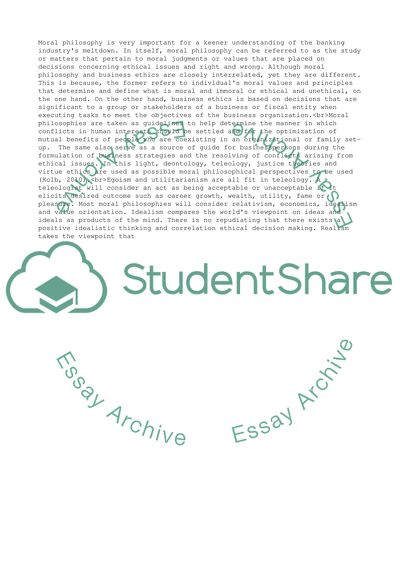Cite this document
(“Assignment 4: Banking Industry Meltdown: The Ethical and Financial Research Paper”, n.d.)
Assignment 4: Banking Industry Meltdown: The Ethical and Financial Research Paper. Retrieved from https://studentshare.org/management/1653366-assignment-4-banking-industry-meltdown-the-ethical-and-financial-risks-of-derivatives
Assignment 4: Banking Industry Meltdown: The Ethical and Financial Research Paper. Retrieved from https://studentshare.org/management/1653366-assignment-4-banking-industry-meltdown-the-ethical-and-financial-risks-of-derivatives
(Assignment 4: Banking Industry Meltdown: The Ethical and Financial Research Paper)
Assignment 4: Banking Industry Meltdown: The Ethical and Financial Research Paper. https://studentshare.org/management/1653366-assignment-4-banking-industry-meltdown-the-ethical-and-financial-risks-of-derivatives.
Assignment 4: Banking Industry Meltdown: The Ethical and Financial Research Paper. https://studentshare.org/management/1653366-assignment-4-banking-industry-meltdown-the-ethical-and-financial-risks-of-derivatives.
“Assignment 4: Banking Industry Meltdown: The Ethical and Financial Research Paper”, n.d. https://studentshare.org/management/1653366-assignment-4-banking-industry-meltdown-the-ethical-and-financial-risks-of-derivatives.


